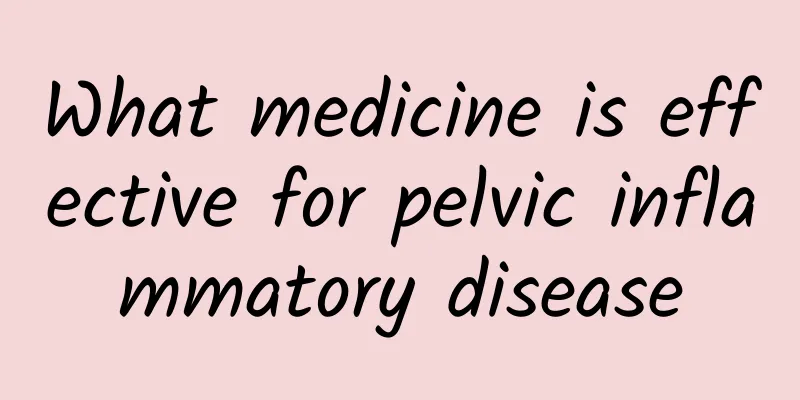How long after a meal is best

|
Traditional Chinese medicine can not only be used to treat diseases, but also to regulate the body. It has much fewer side effects than Western medicine, so many people take traditional Chinese medicine when they are sick. However, there are some things to pay attention to when taking Chinese medicine, especially the timing. Generally speaking, if you take Chinese medicine, you need to wait some time after a meal, otherwise it will affect the efficacy of the medicine. So, how long after a meal is it best to take Chinese medicine? It is best to take the medicine half an hour after a meal. At this time, the digestion of food has basically been completed, the amount of gastric acid is relatively small, and the ingredients in the medicine can be absorbed smoothly. Taking the medicine about 30 minutes after a meal can reduce the stimulation of the drug to the gastrointestinal tract and facilitate the absorption and utilization of the drug. If you take medicine immediately after a meal, the medicine will be mixed with the food and transported to the small intestine in a paste form. The medicine must be absorbed by the stomach to exert its function. Once it is mixed with food and transported to the small intestine, it will not be able to exert its own effect. The standard time for taking medicine is so-called "after meal" refers to about half an hour after a meal, and "during meal" refers to the time between two consecutive meals. Although there is no special time requirement for taking medicine during meals, it is best to take the medicine two hours after the previous meal. "Before meals" means that the medicine should be taken 30 to 60 minutes before meals, mainly to allow the medicine to enter the intestines faster, facilitate intestinal absorption, and reduce the adverse effects of food on its bioavailability. The best time to take medicine is generally that most medicines can be taken after meals. The most important thing is to read the medicine instructions carefully before taking it to see if it specifies when the medicine should be taken. In addition to determining whether to take medicine before or after meals, choosing the right time to take a certain medicine can sometimes not only improve its efficacy but also reduce its side effects. The common time to take medicines is between 4 and 5 a.m.: Diabetes drugs and cardiotonic drugs. At 4 a.m., the human body is most sensitive to insulin, and even a low dose at this time can achieve satisfactory results. Heart failure patients are most sensitive to cardiotonic drugs such as digitalis at 4 a.m., and the efficacy of the drugs can be 10-20 times higher than at other times. However, if you need to take the medicine at this time, the dosage should be reduced appropriately to prevent poisoning. 7 a.m.: Diuretics The efficacy of diuretics in the body is closely related to factors such as renal function and hemodynamics, so it is particularly important to choose the right time to take the medicine. For example, hydrochlorothiazide has fewer side effects when taken at 7 a.m. than at other times, while furosemide has the strongest diuretic effect when taken at 10 a.m. 9-11 a.m.: Studies on hypertension drugs have shown that blood pressure reaches its peak between 9 and 11 a.m. and drops to the lowest point of the day after falling asleep at night. Therefore, patients with hypertension generally only need to take medication during the day, and the dosage in the morning is slightly larger; if they continue to take medication at night, the blood pressure will drop even lower, which can easily induce cerebral thrombosis. 4 p.m.: Cold medicine 4 p.m. is the peak time for high fever and other common cold symptoms, so it is also the best time to take cold medicine. 10 p.m.: Gastric ulcer medicine. A study by Texas State University in the United States showed that stomach acid changes during the day, making ulcer symptoms more severe late at night and early in the morning, so drugs for treating ulcers are most effective when taken at night. Midnight: Anticancer drugs and immune enhancers are commonly used by cancer patients, but serious side effects such as fever and headache are prone to occur when used in the morning. If the drugs are taken at night, this situation can be avoided and the efficacy will not be reduced. |
<<: Recipe of Xiao Chaihu Decoction
>>: White bubbles on nipples when breastfeeding
Recommend
Lowering blood pressure, fighting aging and prolonging life is just a "hand job"
Acupoint health care is the experience summarized...
Side effects of wearing an IUD
When it comes to contraceptive methods, many peop...
What is the procedure for artificial cycle transplantation of frozen embryos?
Every woman wants to be a mother, but in life, so...
Pain under earlobe
Except in winter, our ears are almost always expo...
The efficacy and function of Chasing Wind
Zhuidifeng is a common Chinese medicinal material...
What are the medicinal effects of fennel?
Fennel is also called "valley fennel". ...
What are the functions and benefits of Yongquan foot patch?
The feet are a sensitive part of the body. Althou...
How long does it take to recover from kidney deficiency?
In medicine, kidney deficiency is not just a simp...
What Chinese medicine is good for hepatic hemangioma?
Hepatic hemangioma is a relatively common disease...
How long does it take to boil motherwort water?
Motherwort granules have the effects of promoting...
Ovulation test strip principle
In today's world of particularly high competi...
Woman unable to have child after being "too comfortable" in bed
I was chatting with a friend the other day, and s...
What should women do if they have back pain after standing for a long time?
For women, standing for a long time can easily le...
Ureaplasma urealyticum positive
There are many types of diseases, and good treatm...
Composition of plasma
When it comes to the normal functioning of the hu...









